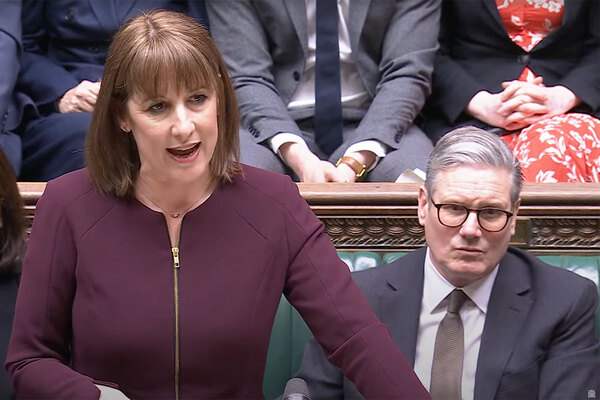East London housing association downgraded to G3/V3
The English regulator has downgraded Tower Hamlets Community Housing (THCH) to G3/V3 after the small east London-based housing association breached the economic standards.
The Regulator of Social Housing (RSH) downgraded the social landlord, which owns or manages 3,192-homes, from G1/V2 to G3/V3, after it was placed on the gradings under review list in December.
This means there are “issues of serious regulatory concern” that the provider is working with the regulator to address.
The RSH said following the 2022 stability check and a subsequent investigation, it has concluded that it “lacks assurance that THCH has a robust business planning, risk and control framework”.
The regulator said it found weaknesses in the housing association’s internal controls framework, and that the board has not been managing its affairs with an “appropriate degree of skill, diligence, prudence and foresight”.
“The board has failed to demonstrate it understands and is managing the risks THCH faces or has appropriate mitigation strategies in place to ensure the long-term viability of the organisation and protect social housing assets,” the regulator said in its report.
The regulator said it has also seen evidence that shows THCH’s financial accounting practices have been “inadequate, and this has led to poor-quality and incomplete financial data” shared with the board, external auditors and the regulator.
Plans have been devised that should lead to an improvement in this area, according to the RSH. It said: “There has also been an historic lack of transparency with stakeholders and the regulator over the quality of financial data and key risks.”
The RSH said that THCH’s financial position is “weak”, and that it is faced with a “substantial programme” of fire remediation work up to the end of 2025-26.
It said that THCH is finalising documentation for a covenant waiver from its funder as it failed to identify the full accounting implications of the Building Safety Act 2022 earlier in the financial year and made a “poor decision” surrounding budgeting for the recovery of costs.
Waivers are also being sought for the subsequent financial years 2023 to 2026, the regulator added.
The RSH said that irrespective of securing the necessary covenant waivers, THCH’s business plan demonstrates that it is “unable to meet the costs of its day-to-day operating activities and repairs liabilities from its rental income stream”.
“There is no capacity for any future development. Finally, stock condition data, upon which forecast stock reinvestment provisions in the business plan are based, is out-dated and over reliant on cloning,” the RSH said. “Although this is now being addressed, we do not have assurance that the business plan’s cost provisions are based on prudent assumptions. THCH has been open and transparent with the regulator and has acknowledged the regulator’s concerns.”
The RSH said that a governance improvement plan has been drafted and that THCH is working with the regulator and external advisors to ensure it has the “capacity, capability and support to make the changes required”.
The regulator said this is to ensure THCH’s long-term viability, and to address the governance and financial viability issues identified in this regulatory judgement.
Harold Brown, senior assistant director for investigations and enforcement at the RSH, said: “Our investigation found significant issues in the way Tower Hamlets Community Housing is run, including a failure to manage financial risks and reliance on poor-quality data, leaving it with financial weaknesses. It needs to tackle these issues promptly and return to compliance with our standards.”
Mark Thrasher, chair of THCH, said that the provider is “committed” to addressing the regulator’s concerns to improve its resilience.
Mr Thrasher said: “We’ve welcomed the opportunity to engage with the regulator in a transparent way. Our board recognises that historic strategic financial decisions have not been robust enough.
“Significant building safety investment, inflation, a rent cap, the cost of living crisis and a shortage of affordable homes is having a considerable impact on the long-term survival of housing providers our size.
“While a downgrade is disappointing, against this backdrop, it was anticipated and accurately reflects our challenges. We haven’t been naive to this and have been open about actively seeking opportunities to ensure a sustainable future.”
He added: “We take the regulator’s judgement seriously and are committed to addressing its concerns to improve our resilience. It’s positive that the regulator is confident we have the capacity, capability and resources to do just that. We remain focused on providing good, safe homes and services to our residents in Tower Hamlets.”
Earlier this month, the regulator revealed that Haringey Council breached the regulator’s consumer standards after almost 5,000 of its properties failed to meet the Decent Homes Standard and more than 4,000 high-risk remedial fire safety actions were overdue.
In February, the RSH said it had taken enforcement action against two small social housing providers after they were “unwilling and/or unable to” address their failures to meet regulatory standards in a “prompt and effective manner”.
Sign up for Social Housing’s weekly news bulletin
Social Housing’s weekly news bulletin delivers the latest news and insight across finance and funding, regulation and governance, policy and strategy, straight to your inbox. Meanwhile, news alerts bring you the biggest stories as they land.
Already have an account? Click here to manage your newsletters.
RELATED








